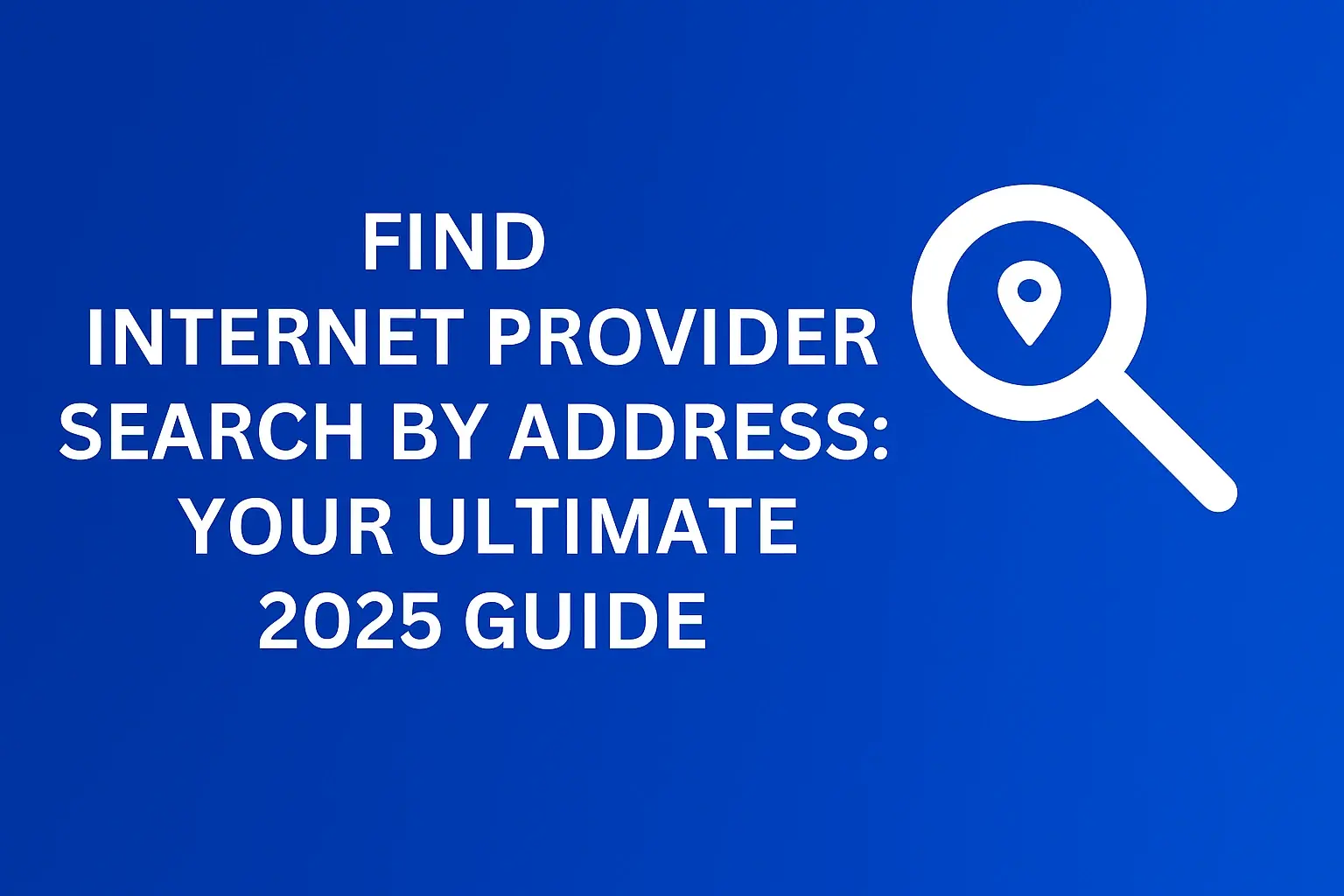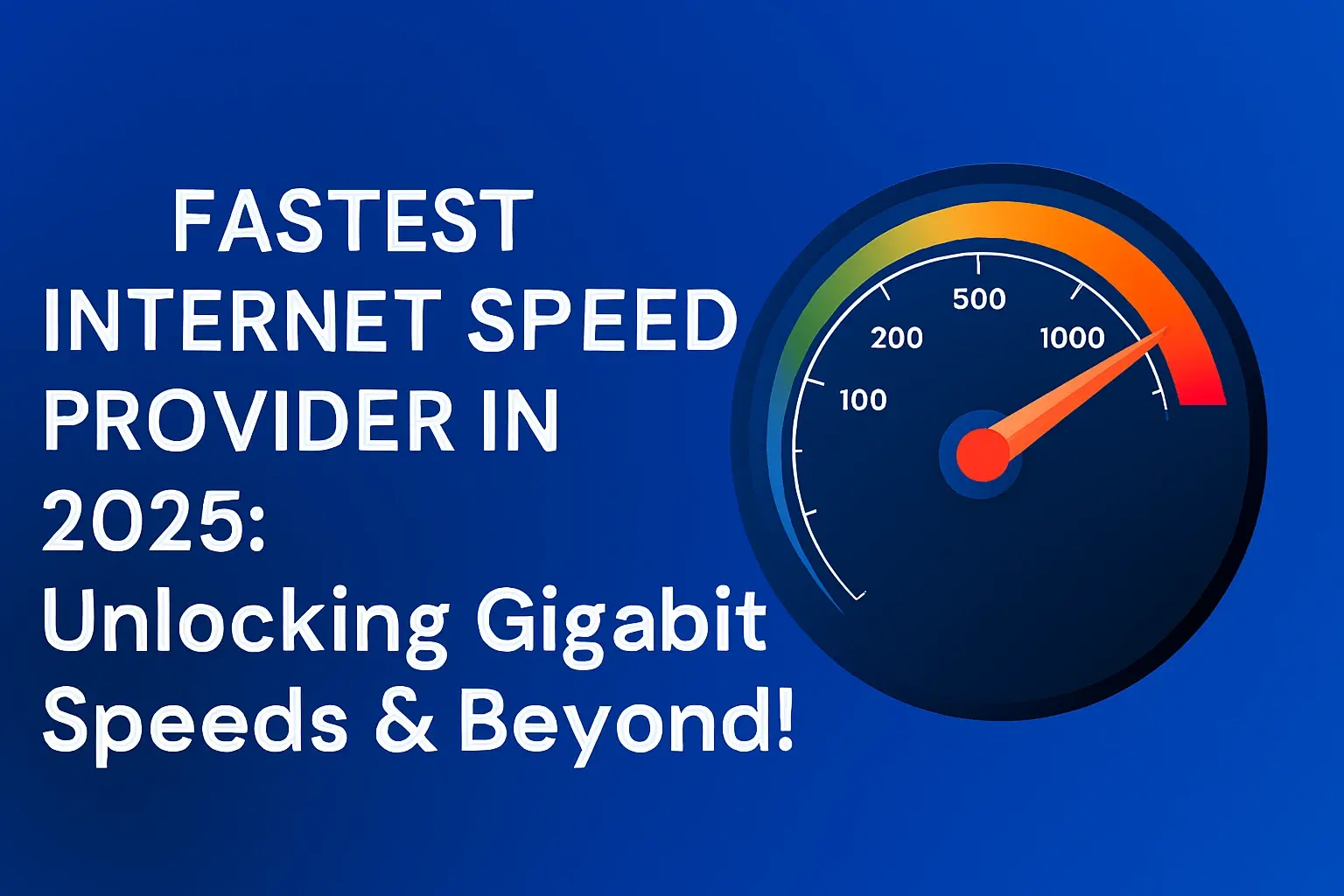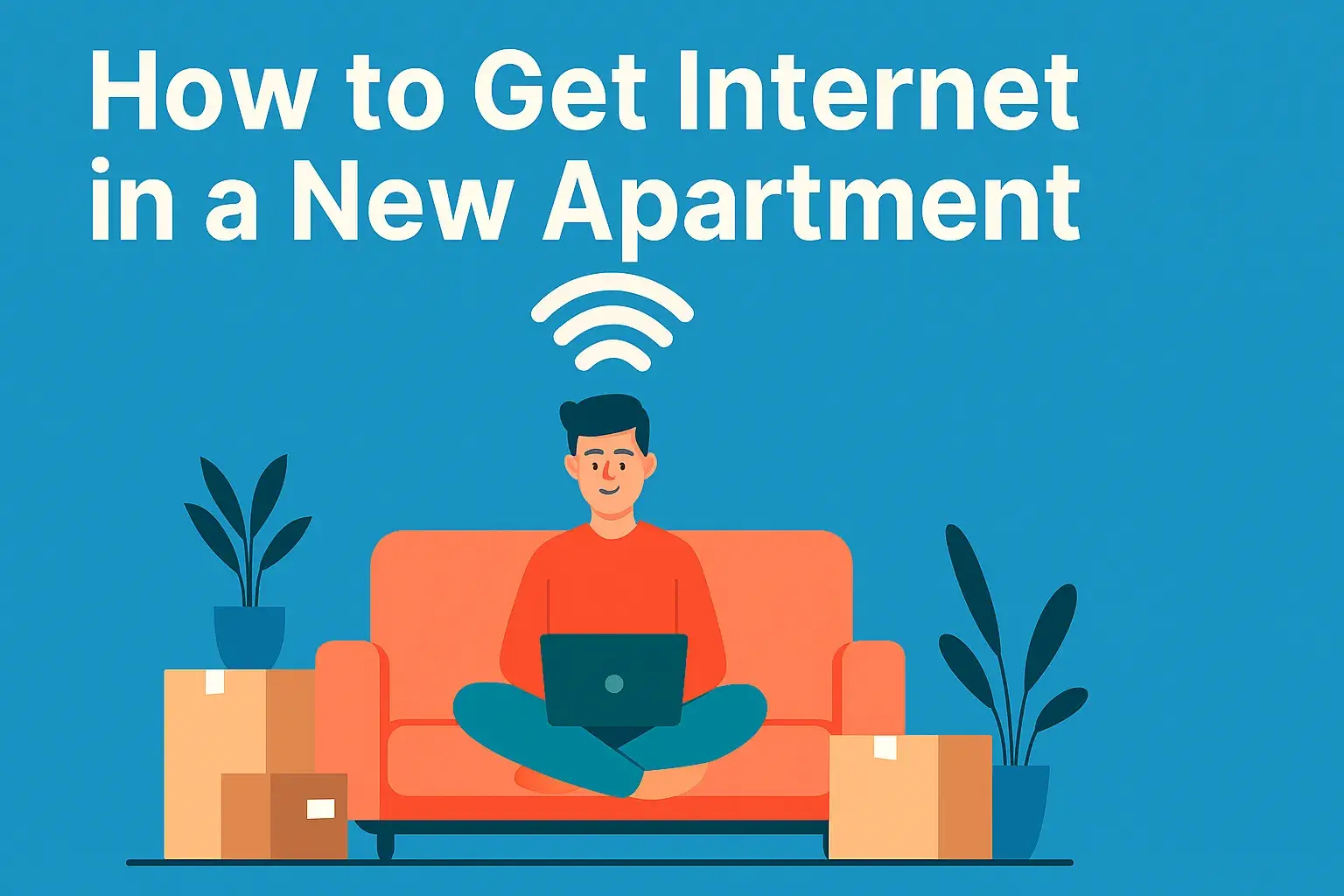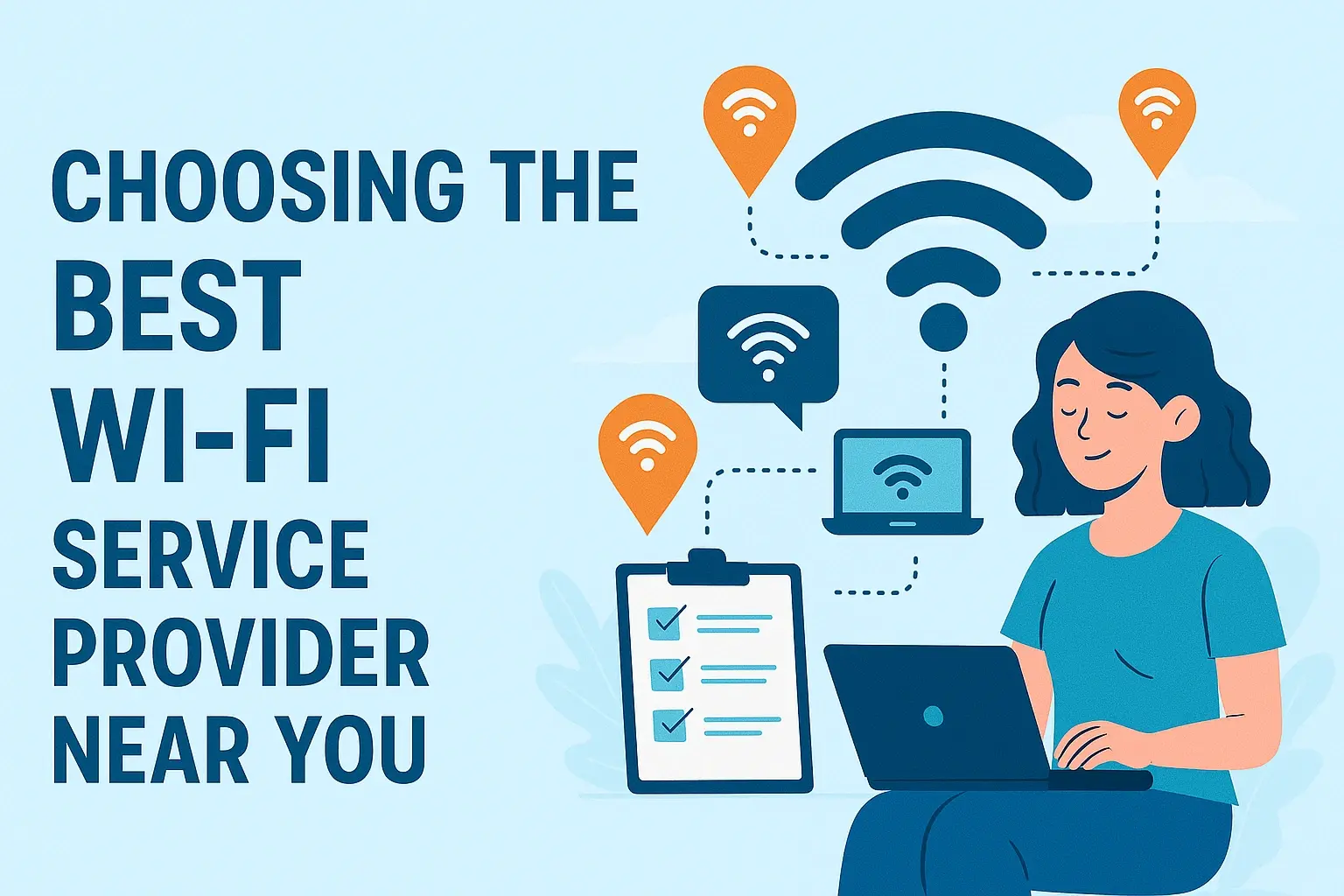Top Internet Providers in Phoenix: Your Ultimate Guide
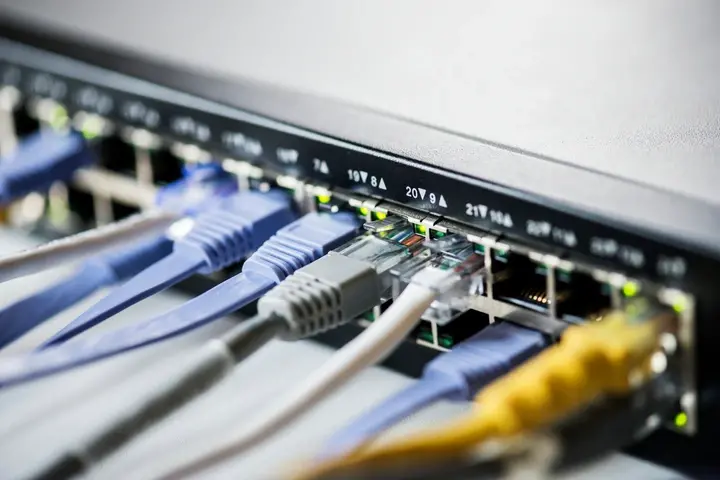
Phoenix is a place, a city, which is the fifth largest in the United States of America with a total of 1.6 million people living there. Phoenix, one of the key cities in the United States, has several options of ISPs (Internet Service Providers) to select from. This article will reveal the top Internet providers in Phoenix and the essential information to facilitate your ISP selection for either your home or business.
The Major Internet Providers Who Offer Their Services in Phoenix
The ISPs serving Phoenix include: The ISPs serving Phoenix include:
• Cox: The leader of cable internet in Phoenix that provides up to 1 Gbps speeds.
• CenturyLink: Major DSL and Fiber optic service provider: delivering up to 1 Gbps speed of data transmission.
• Sparklight: Cable internet covering sections of Phoenix with speeds as high as 1 Gbps is another option.
• Frontier: DSL and fiber internet service are provided in selected areas of Phoenix, offering a maximum speed of up to 500 Mbps.
• HughesNet: The satellite internet we provide for rural areas instead of those in the city of Phoenix.
• T-Mobile 5G Home Internet: Supplies 5G network for the delivery of home wireless Internet with typical download rates that are up to 100 Mbps.
• Verizon 5G Home Internet: Yet another example of 5G home internet technology that can provide download speeds of 300 Mbps on average.
In the bustling metropolis of Phoenix, Arizona, where the sun blazes year-round and the population continues to surge beyond 1.6 million residents, reliable high-speed internet has become as essential as air conditioning. As of August 2025, Phoenix's internet landscape is dominated by a mix of fiber-optic, cable, 5G home, and satellite providers, offering speeds from a modest 100 Mbps for basic browsing to blazing 8 Gbps for data-intensive households. With the rise of remote work, online education, and streaming services consuming an average of 500 GB per month per household, choosing the right provider can significantly impact daily life. Leading options include Quantum Fiber for its symmetrical fiber speeds, Cox Communications for widespread cable coverage, and emerging 5G players like Verizon and T-Mobile for affordable wireless alternatives. Prices start as low as $30 per month for entry-level plans, but can climb to $165 for premium gigabit options, often with promotional discounts for new customers. According to recent industry reports, Phoenix ranks moderately in national broadband access, with about 98% of homes having access to at least 100 Mbps, though fiber penetration lags at around 18%. This ultimate guide explores the top internet providers in Phoenix, comparing speeds, prices, availability, and features to help you navigate the options and select the best fit for your home or business.
Phoenix's unique environment—sprawling suburbs, desert heat, and a tech-savvy population driven by sectors like semiconductors and tourism—demands robust internet infrastructure. The city's growth, projected to add another 200,000 residents by 2030, has spurred investments from providers like Quantum Fiber and Cox, expanding fiber networks to combat congestion in high-density areas like downtown and Scottsdale. Unlike rural Arizona spots reliant on satellite, Phoenix benefits from urban advantages, including competitive pricing and bundles with TV or mobile services. However, challenges persist: Extreme temperatures can affect equipment reliability, and data caps from providers like Cox may frustrate heavy users streaming 4K content or gaming online. Customer satisfaction varies, with fiber services scoring higher in reliability surveys, while cable options face criticism for outages during peak hours. In 2025, the average Phoenix household pays about $65 monthly for internet, below the national average, but value depends on speed and perks like unlimited data. Whether you're a remote worker needing symmetrical uploads for video calls or a family streaming on multiple devices, understanding local providers is key to avoiding frustration and overpayment.
Why Choose the Right Internet Provider in Phoenix?
Selecting an internet provider in Phoenix isn't just about speed—it's about aligning with your lifestyle amid the Valley of the Sun's demands. With over 21% of Phoenicians working from home, consistent connectivity is crucial for productivity, especially in suburbs like Chandler or Mesa where commute alternatives thrive. Fiber providers like Quantum Fiber offer symmetrical speeds, meaning uploads match downloads, ideal for uploading large files or cloud backups, unlike asymmetrical cable from Cox. In a city where temperatures exceed 100°F for months, providers with underground fiber lines, such as CenturyLink's Quantum brand, provide more resilience against heat-induced disruptions compared to above-ground cable. Economically, bundling internet with mobile or TV can save $10–$30 monthly, as seen with Verizon's discounts for existing phone customers.
Availability is a major factor; while Cox covers nearly 99% of Phoenix, fiber options are spotty, reaching only about 37% via Quantum Fiber. For rural outskirts like Anthem, satellite from Starlink or Hughesnet fills gaps, though with higher latency unsuitable for real-time gaming. Customer service ratings, per J.D. Power and ACSI, favor Verizon (7.2/10) and T-Mobile (7.4/10) for wireless ease, while Cox scores lower at 6.2 due to billing complaints. Promotions abound in 2025: Quantum Fiber offers no contracts and free installation, Cox provides gift cards up to $300, and T-Mobile touts price locks. Sustainability-conscious users might prefer fiber's energy efficiency over satellite's higher carbon footprint. Ultimately, the right choice balances speed needs—300 Mbps for basic households, 1 Gbps for power users—with budget and location.
Key Factors to Consider When Choosing an Internet Provider
Before committing, evaluate several criteria tailored to Phoenix's market. Speed is paramount: The FCC recommends at least 100 Mbps for households with 4+ devices, but for 4K streaming or VR gaming, aim for 500 Mbps or higher. Quantum Fiber's 8 Gbps plan caters to extreme needs, while Cox's 2 Gbps suffices for most. Price transparency matters; watch for introductory rates (e.g., $50 for first year) that jump post-promo, plus fees like Cox's $15 equipment rental or $10 late payment. Availability checks via ZIP code are essential—enter yours on provider sites to confirm eligibility.
Connection type influences performance: Fiber (Quantum, EarthLink) offers low latency and unlimited data, cable (Cox) is widely available but capped at 1.25 TB, 5G home (Verizon, T-Mobile) is contract-free but signal-dependent, and satellite (Starlink) suits remote areas despite 150 ms latency. Customer reviews highlight reliability; Reddit users praise Quantum Fiber for stability in Scottsdale, criticizing Cox for outages. Contracts vary—no annual deals from Quantum or T-Mobile, but Cox may require one for bundles. Perks like free routers (Quantum) or streaming credits (Verizon) add value. Finally, consider scalability: Growing families might upgrade easily with fiber, while budget users opt for T-Mobile's $50 flat rate.
Top Internet Providers in Phoenix for 2025
Based on coverage, speeds, pricing, and reviews, here are Phoenix's standout providers.
- Quantum Fiber
As CenturyLink's fiber arm, Quantum Fiber tops lists for its blazing speeds and value. Offering symmetrical uploads/downloads up to 8 Gbps, it's perfect for heavy users. Plans start at $50/mo for 500 Mbps, $75 for 940 Mbps, and $165 for 8 Gbps. Availability reaches 37–75% of Phoenix, focused on urban cores. Pros: Unlimited data, no contracts, free equipment; cons: Limited footprint, potential installation waits. Customer rating: 4.1/5, praised for reliability. - Cox Communications
With 99% coverage, Cox is Phoenix's go-to for cable internet. Speeds range from 100 Mbps ($50/mo) to 2 Gbps ($140/mo), including fiber in select areas. Bundles with TV add value, but 1.25 TB data caps (extra $30 for unlimited) irk users. Pros: Wide availability, strong for gaming; cons: Price hikes, contracts possible. Rating: 3.5/5, mixed on pricing. - Verizon 5G Home Internet
Leveraging 5G, Verizon offers wireless speeds of 300–1,000 Mbps starting at $50/mo ($35 with mobile plan). Covers 31% of Phoenix, ideal for apartments. Pros: No contracts, unlimited data, easy setup; cons: Signal variability in dense areas. Rating: 4/5, high satisfaction. - T-Mobile Home Internet
T-Mobile's 5G service delivers 72–245 Mbps for $50/mo ($40 with phone line), covering 56%. Pros: Price lock, free gateway, no caps; cons: Slower than fiber, congestion issues. Rating: 4/5, budget-friendly. - CenturyLink
For non-fiber areas, CenturyLink's DSL reaches 78%, with speeds up to 100 Mbps at $55/mo. Pros: Affordable basics; cons: Slow for modern needs. Often transitions to Quantum. Rating: 3.5/5. - Starlink
Satellite for rural Phoenix, up to 220 Mbps at $120/mo. Pros: Anywhere access; cons: High latency, equipment cost ($599). Rating: 4/5. - EarthLink Fiber
Resells fiber up to 5 Gbps starting $40/mo, 45% coverage. Pros: Competitive pricing; cons: Dependent on partners. Rating: N/A.
| Provider | Type | Max Speed | Starting Price | Coverage | Rating |
|---|---|---|---|---|---|
| Quantum Fiber | Fiber | 8000 Mbps | $50/mo | 37% | 4.1/5 |
| Cox | Cable/Fiber | 2000 Mbps | $50/mo | 99% | 3.5/5 |
| Verizon 5G | 5G Home | 1000 Mbps | $50/mo | 31% | 4/5 |
| T-Mobile | 5G Home | 245 Mbps | $50/mo | 56% | 4/5 |
| CenturyLink | DSL/Fiber | 100 Mbps | $55/mo | 78% | 3.5/5 |
| Starlink | Satellite | 220 Mbps | $120/mo | 99% | 4/5 |
| EarthLink | Fiber | 5000 Mbps | $40/mo | 45% | N/A |
Additional Tips for Maximizing Your Internet in Phoenix
To optimize, test speeds post-installation using Ookla. Negotiate with providers for better deals—mention competitors. For bundles, Cox offers TV/internet from $100/mo. Rural users, consider fixed wireless like Phoenix Internet (up to 1 Gbps, $65/mo). Protect against heat with ventilated routers. Monitor data usage to avoid caps.
Conclusion
Navigating Phoenix's internet providers in 2025 reveals a competitive market led by Quantum Fiber's fiber excellence, Cox's extensive reach, and affordable 5G from Verizon and T-Mobile ensuring options for every budget and need from urban high-rises to desert outskirts. By prioritizing factors like speed reliability availability and customer perks residents can secure seamless connectivity amid the city's growth and heat. Whether bundling for savings or opting for unlimited data to fuel streaming and work ultimately comparing plans via ZIP code checks and leveraging promotions will yield the best value empowering Phoenicians to stay connected without compromise in the Valley of the Sun.
Faq
1. Who is the best internet provider in Phoenix?
Spectrum and Cox are the most popular choices, but AT&T Fiber offers faster speeds in select areas.
2. What is the fastest internet in Phoenix?
AT&T Fiber and Cox Gigablast offer speeds up to 1 Gbps for Phoenix residents.
3. Is fiber internet available in Phoenix, AZ?
Yes, AT&T and CenturyLink offer fiber internet in many Phoenix neighborhoods.
4. What’s the cheapest internet plan in Phoenix?
Plans start as low as $30/month with providers like Cox and T-Mobile 5G Home.
5. Which internet providers offer no-contract plans in Phoenix?
Spectrum, T-Mobile 5G, and EarthLink offer no-contract internet options.

